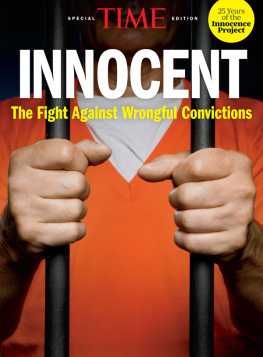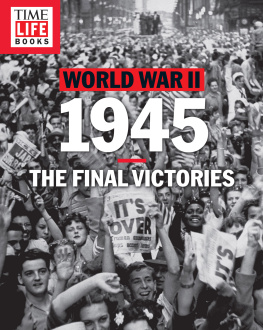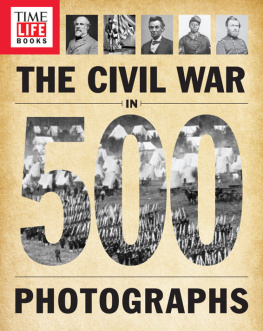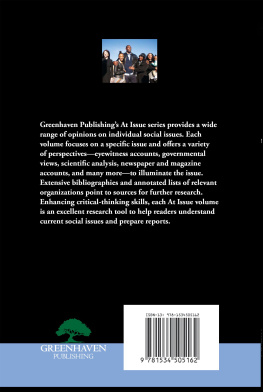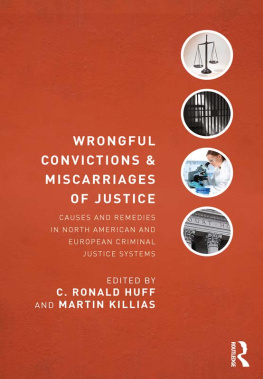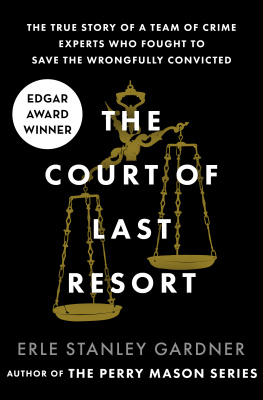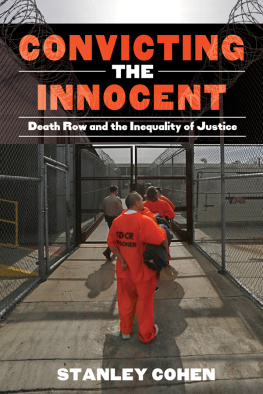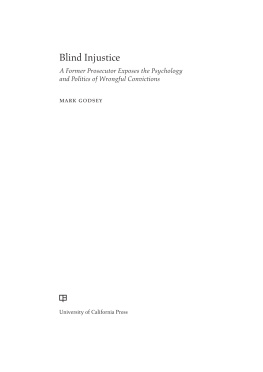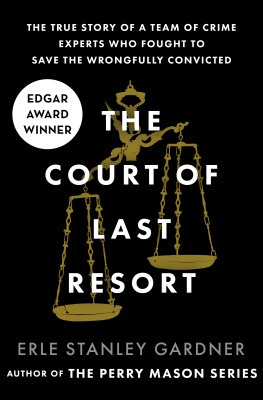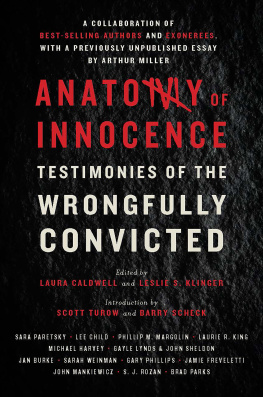The Editors of TIME - TIME Innocent: The Fight Against Wrongful Convictions
Here you can read online The Editors of TIME - TIME Innocent: The Fight Against Wrongful Convictions full text of the book (entire story) in english for free. Download pdf and epub, get meaning, cover and reviews about this ebook. year: 2017, publisher: Time Books, genre: Detective and thriller. Description of the work, (preface) as well as reviews are available. Best literature library LitArk.com created for fans of good reading and offers a wide selection of genres:
Romance novel
Science fiction
Adventure
Detective
Science
History
Home and family
Prose
Art
Politics
Computer
Non-fiction
Religion
Business
Children
Humor
Choose a favorite category and find really read worthwhile books. Enjoy immersion in the world of imagination, feel the emotions of the characters or learn something new for yourself, make an fascinating discovery.
- Book:TIME Innocent: The Fight Against Wrongful Convictions
- Author:
- Publisher:Time Books
- Genre:
- Year:2017
- Rating:5 / 5
- Favourites:Add to favourites
- Your mark:
- 100
- 1
- 2
- 3
- 4
- 5
TIME Innocent: The Fight Against Wrongful Convictions: summary, description and annotation
We offer to read an annotation, description, summary or preface (depends on what the author of the book "TIME Innocent: The Fight Against Wrongful Convictions" wrote himself). If you haven't found the necessary information about the book — write in the comments, we will try to find it.
TIME looks at those wrongfully convicted, and the fight to set them free.
The Editors of TIME: author's other books
Who wrote TIME Innocent: The Fight Against Wrongful Convictions? Find out the surname, the name of the author of the book and a list of all author's works by series.
TIME Innocent: The Fight Against Wrongful Convictions — read online for free the complete book (whole text) full work
Below is the text of the book, divided by pages. System saving the place of the last page read, allows you to conveniently read the book "TIME Innocent: The Fight Against Wrongful Convictions" online for free, without having to search again every time where you left off. Put a bookmark, and you can go to the page where you finished reading at any time.
Font size:
Interval:
Bookmark:
LAST WORD
That it is better 100 guilty Persons should escape than that one innocent Person should suffer, is a Maxim that has been long and generally approved.
BENJAMIN FRANKLIN, MARCH 14, 1785
Chapter One: The Stolen Years
A Lifetime Lost, Then Freedom
Ricky Jackson was falsely convicted of murder in 1975. He holds the record for the most years an exonerated American has served in prison
BY COURTNEY MIFSUD
Jackson, outside his Cleveland apartment in 2015, says he is still getting used to his rebirth.
A lie landed Ricky Jackson on death row at the age of 18.
The lietold by a 12-year-old boy, who decades later disclosed that police pressured him to describe a vicious Cleveland murder, a crime I never sawsent Jackson to prison for 39 years, five months and 27 days. According to the National Registry of Exonerations, it is the longest time any American has served behind bars for a crime of which he was exonerated.
I spent my 20s, my 30s, my 40s and nearly all of my 50s in prison, Jackson, who turns 60 this year, said upon his release in 2014. Time is just something that you cant get back, so Im not going to really cry about it. But I had plans for my life.
Those plans were shattered on May 19, 1975, when two young men attacked Harold Franks, a money-order salesman, as he left the Fairmount Cut-Rate grocery store on Fairhill Road in Cleveland carrying a briefcase filled with cash and money orders. The men ordered Franks to give them his case. When he refused, they struck him on the head with a pipe. One assailant splashed Frankss face with acid; the other shot him twice in the chest. A third shot was fired through the grocery stores glass door, wounding the stores co-owner. Franks did not survive.
The robbers fled with the briefcase, which contained about $425, and escaped in a car driven by a third man. News of the robbery spread throughout the neighborhood, attracting a crowd of more than 100 outside the store. Among those at the scene: Ricky Jackson, 18, Ronnie Bridgeman, 17, and Ronnies brother Wiley, 20. All three were arrested on May 25, 1975, based, police said, on the word of a 12-year-old seventh-grader at Audubon Middle School, Edward Vernon, who said he saw Jackson and Ronnie Bridgeman commit the murder and Wiley Bridgeman drive the getaway car.
None of the suspects had a criminal record; all were known to stay out of trouble. But the three were charged with aggravated murder, aggravated attempted murder and aggravated robbery. That fall, they were separately tried, convicted and sentenced to death for Frankss murder.
There was no physical evidence presented at the trial. The police never recovered the gun that killed Franks or tracked down his briefcase. A plastic-coated paper cup that was found at the scene, which police theorized held the acid thrown at Frankss face, tested negative for fingerprints. The cup disappeared after the tests.
The prosecutions case was based almost entirely on Vernons testimony, despite its shaky timeline. He had initially told police he was on a school bus when he saw the attack. At the trial, he said he was already off the bus. There were several other discrepancies. But his words sent Jackson and the Bridgemans to a maximum-security prison near Lucasville, Ohio, where they remained in solitary confinement until the Supreme Court struck down Ohios death penalty in 1978, changing the death sentences for Jackson and the Bridgemans to terms of life in prison. (After more than two decades in jail, both Bridgeman brothers were granted parole, although Wiley violated his and returned to prison.) After 13 years, Jackson was transferred to the Lebanon Correctional Institution, where he refereed basketball games, earned a degree in horticulture, worked in a greenhouse and trained dogs. I tried to be the kind of person my mother wanted me to be, he told the Christian Science Monitor . I was a guy in prison. But they were never going to make me a prisoner.
Jackson moved on to other prisons, and he applied for parole five times, always insisting he had no role in Frankss murder. He was denied each time. His lowest point in prison came in 2008, he said, when he learned of his mothers death.
Two years prior, another inmate had told Jackson about the Ohio Innocence Project (OIP), an organization that represented prisoners who believed they were wrongly convicted. He wrote its staffers a letter, and they agreed to take his caseeven though, as Brian Howe, an OIP attorney, noted, there was no DNA or other physical evidence, and witness Edward Vernon refused to talk to them.
Their big break came in 2011 when Kyle Swenson, a journalist for Cleveland Scene magazine, wrote about the inconsistencies in Vernons testimony. The piece also noted that the husband of the grocery-store owner who was shot by the robbers paid Vernon $50 to testify.
Swenson reached out to Vernon, to no avail. He then sought out Vernons pastor, Anthony Singleton, who at first could also not persuade Vernon to talk. But in 2013, Vernon finally opened up. Singleton swore in an affidavit that when he asked Vernon about the murder this time, Vernon said that he lied to the police when he said he had witnessed the murder in 1975. Singleton continued, He told me that he tried to back out of the lie at the time of that lineup, but he was only a child, and the police told him it was too late to change his story.
Mark Godsey and Brian Howe, the Ohio Innocence Project attorneys handling Jacksons case with several law-school students, petitioned for a new trial for Jackson. (Petitions for the Bridgeman brothers came later.) When the case was reopened, the attorneys found new evidence that Vernon had attempted to recant his original statement to the police but that the police strong-armed him into testifying anyway. Jackson later confided that the police tried to beat him into confessing. On multiple occasions, he said, the officers would pummel him in the head and torso, using a phone book so that they didnt leave bruises.
The Ohio Innocence Project team dug up police reports showing that two other men, Paul Gardenshire and Ishmael Hixon, were under suspicion of possible involvement in Frankss murder at the time of the incident. Cases against them never moved forward after Vernons statementdespite Hixons past record, including a shooting and robbery, and the fact that the license plate on the getaway car matched Hixons. Just a year after the Franks murder, Hixon pleaded guilty to more than a dozen counts of aggravated robbery.
Jackson officially asked for a new hearing, and in November 2014, Vernon testified that his prior trial testimony was false. Everything was a lie. They were all lies, he said, admitting that he did not witness the murder but told police that he did, thinking, Im doing the right thing. When he tried to change his story, he said, police told him that it was too late and that his parents would be arrested for perjury if he did recant.
Jackson took the stand after Vernon, telling the courtroom, Regardless of what happens here today, somebody heard the truth for once. I spent 39 years of my life paying for something I didnt do.
Later that month, the states prosecutor, Timothy McGinty, did not oppose Jacksons motion for a new trial. The state concedes the obvious, he said. Three days later, on Nov. 21, 2014, Jackson and Wiley Bridgeman were released. They joined Ronnie Bridgeman (now known as Kwame Ajamu), who had been paroled earlier, and the attorneys for a joyous meal at a local Red Lobster. On Feb. 12, 2015, a judge finally declared that Jackson and the Bridgemans had been wrongly imprisoned.
These days Jackson lives a simple life, rising early, drinking his protein shakes, cleaning up his house, meeting with friends. He has become a public speaker, giving talks for TED, the nonprofit organization dedicated to spreading ideas, and discussing his experiences with law-school students.
Next pageFont size:
Interval:
Bookmark:
Similar books «TIME Innocent: The Fight Against Wrongful Convictions»
Look at similar books to TIME Innocent: The Fight Against Wrongful Convictions. We have selected literature similar in name and meaning in the hope of providing readers with more options to find new, interesting, not yet read works.
Discussion, reviews of the book TIME Innocent: The Fight Against Wrongful Convictions and just readers' own opinions. Leave your comments, write what you think about the work, its meaning or the main characters. Specify what exactly you liked and what you didn't like, and why you think so.

